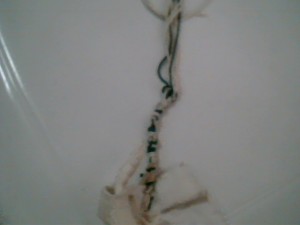“Isaac and Ishmael buried Abraham in the Cave of Machpelah in the Field of Ephron the Hittite” (Genesis: 25:9)
This appearance of both Isaac and Ishmael at the funeral of Abraham is seen expressive of a situation where both Isaac and Ishmael were living in peace with one another. It is interesting to note that after burying Abraham in the place where Abraham buried his wife Sarah, Isaac then goes and lives in ‘Be’er Lehai Ro’i’ (The Well where Ishmael was saved by an angel). Seemingly Isaac actually dwelt with his brother and they operated with as a family unit (possibly including Hagar).
If one were to visit the Cave of the Patriarchs in Hebron, commonly identified as Machpelah. One would also see Jews and Muslims (traditionally thought of as the descendants of Isaac and Ishmael respectively) sharing the same building for prayer.


